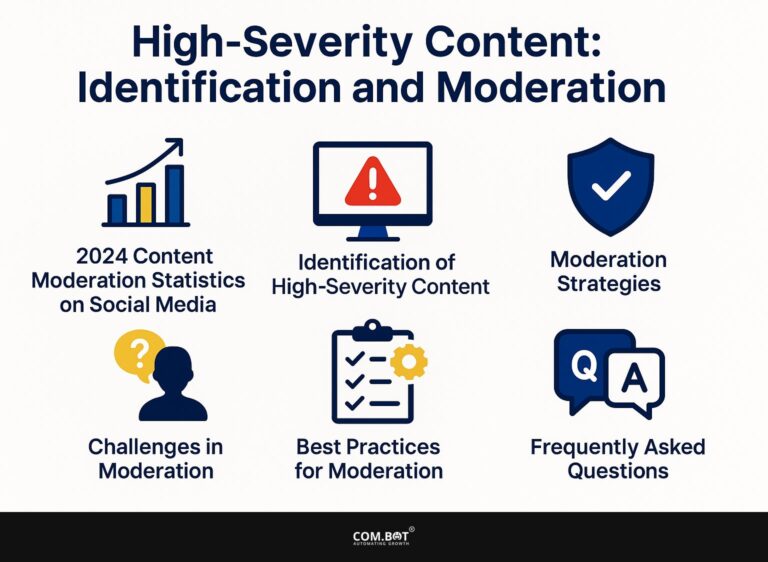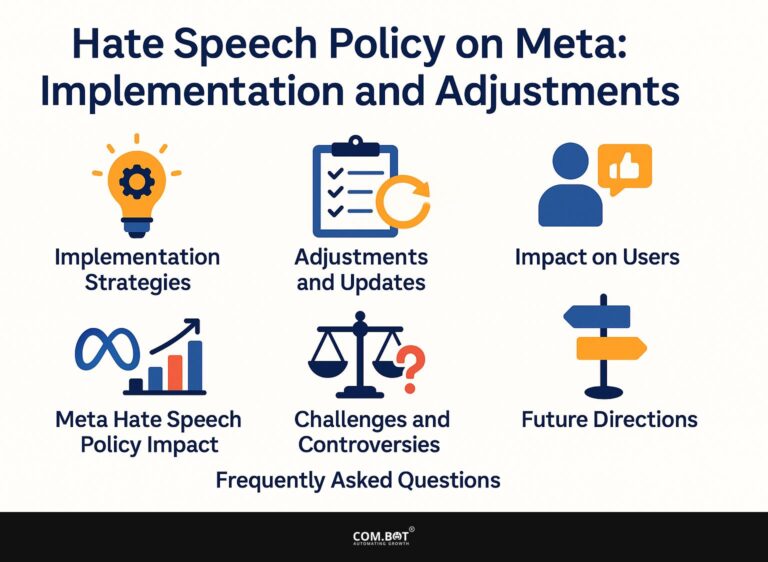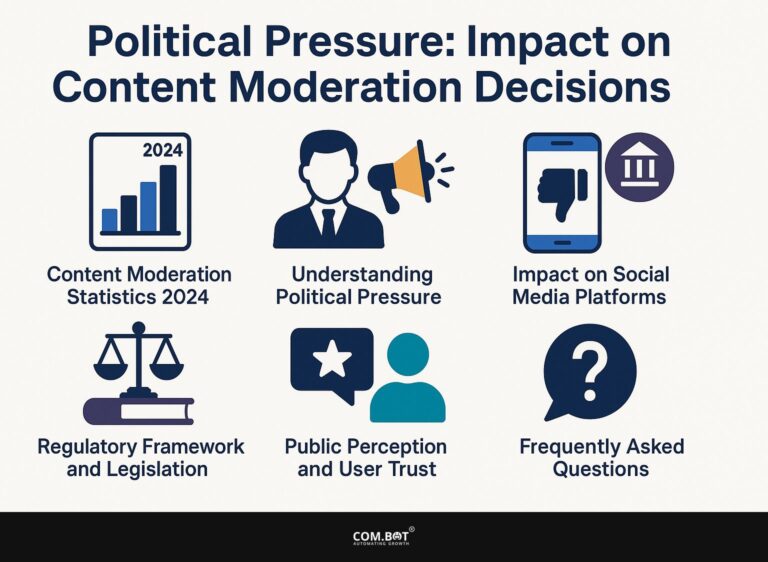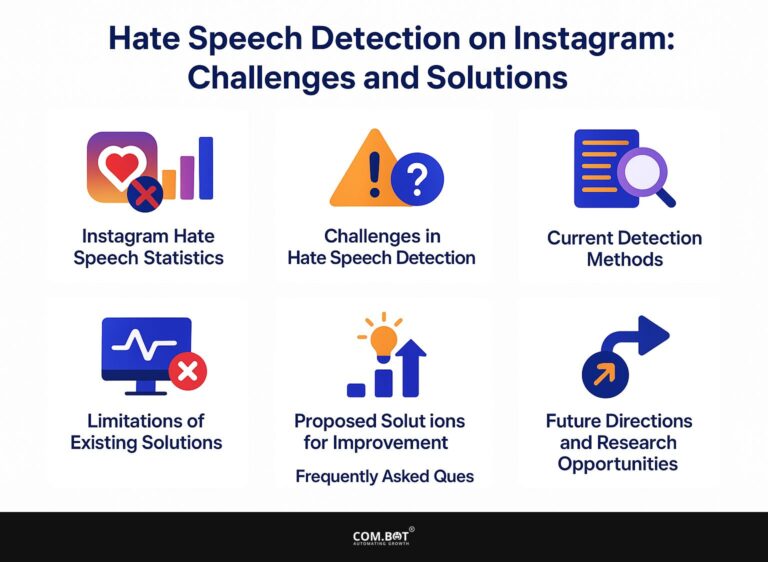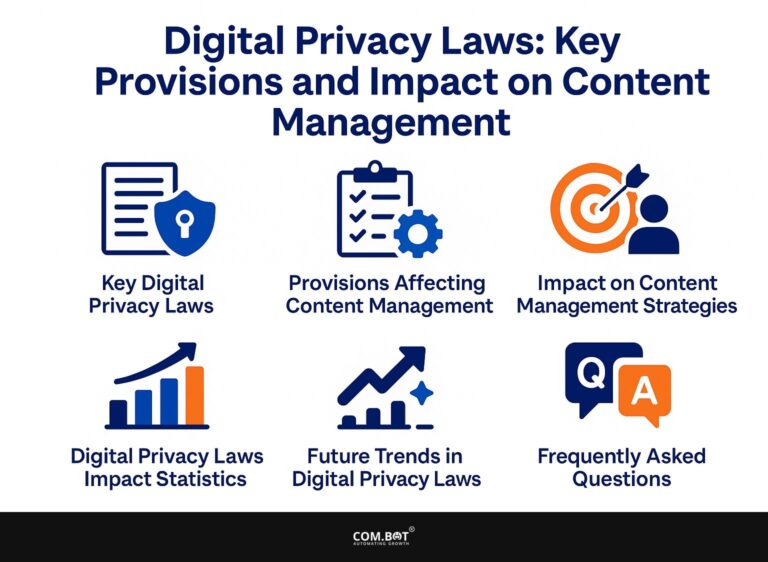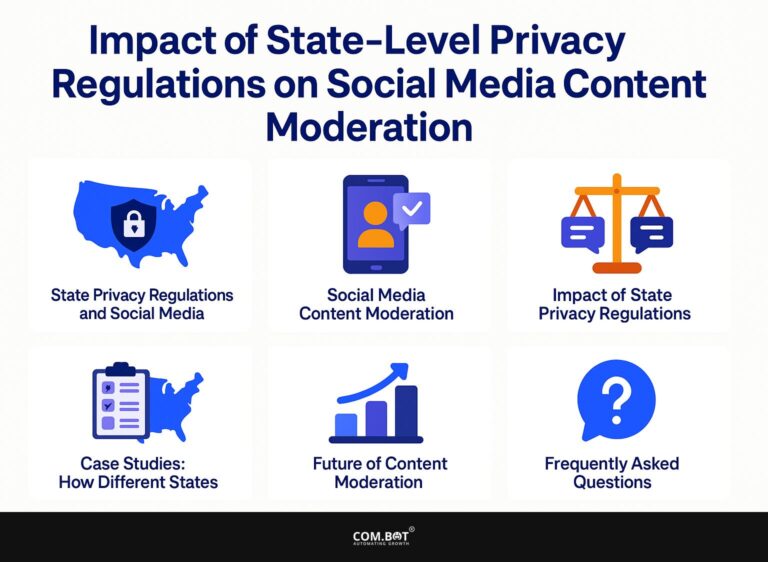Monetization vs. Moderation: Conflict and Resolution Strategies
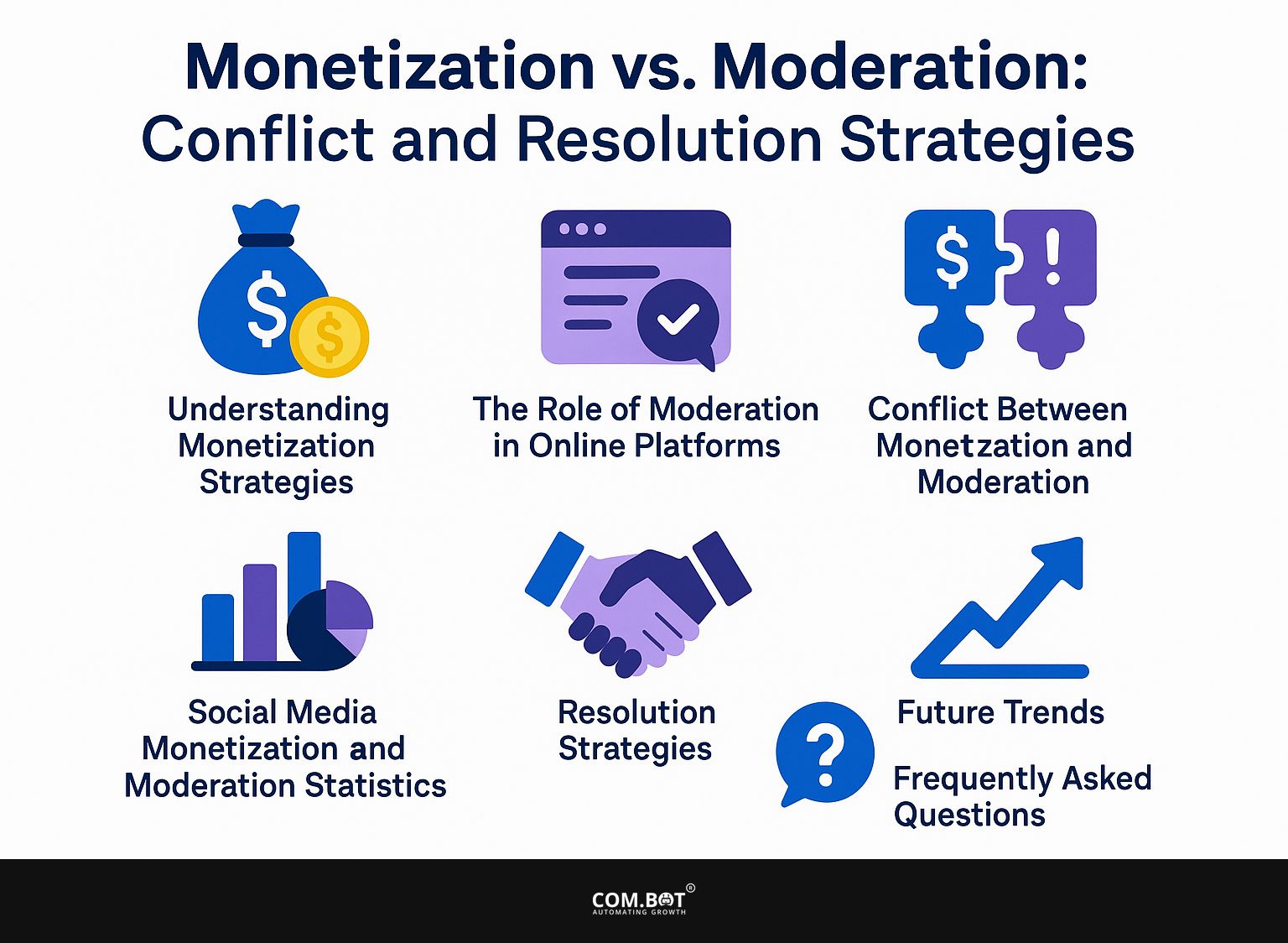
Finding the right mix between making money and managing comments is important for how people view a brand in social media. Tips from top companies like Microsoft and expert Robin Dimond at the MarTech Show show how good plans can improve response rates and handle customer questions.
This article will look at the struggle between these two important topics and provide practical solutions to keep a successful online community.
Key Takeaways:
- Balance is key in the relationship between monetization and moderation in online platforms. Too much emphasis on either can lead to conflicts and impact user experience adversely.
- Good moderation is important for keeping users happy and balancing the need to make money with the need to enforce rules.
- To solve the issue between making money and moderating content, it’s necessary to find a middle ground. Look at the best ways to put this into practice, considering new technology and changing what users want.
- 1 Understanding Monetization Strategies
- 2 The Role of Moderation in Online Platforms
- 3 Conflict Between Monetization and Moderation
- 4 Social Media Monetization and Moderation Statistics
- 5 Social Media Monetization and Moderation Statistics
- 6 Resolution Strategies
- 7 Future Trends
- 8 Frequently Asked Questions
- 8.1 1. What is the difference between monetization and moderation?
- 8.2 2. How do conflicts arise between monetization and moderation?
- 8.3 3. What are some common conflict resolution strategies in this situation?
- 8.4 4. What factors should be considered when deciding between monetization and moderation?
- 8.5 5. Is it possible for monetization and moderation to coexist peacefully?
- 8.6 6. What can be done to prevent conflicts between monetization and moderation?
1. Defining Key Concepts
Monetization involves different ways to make money from online content, while moderation includes methods that keep user interactions positive and secure.
- Key monetization strategies include ad revenue generation through platforms like Google AdSense, where creators earn money by displaying ads on their sites based on traffic.
- Affiliate marketing offers commissions by promoting products, such as sharing links to Amazon products.
On the moderation side, effective practices involve utilizing tools like Facebook’s comment moderation system to filter harmful comments and Instagram’s user reporting features to maintain community standards. Using these methods increases revenue and creates a positive experience for users.
2. The Importance of Balance
Striking a balance between monetization and moderation is essential, as neglecting either can lead to decreased user engagement or brand reputation damage.
Successful platforms have integrated both strategies seamlessly. For instance, Reddit employs community-based moderation combined with targeted advertising. Their approach ensures ads are helpful and not intrusive, preserving the user’s experience.
Similarly, Twitch balances content monetization through subscriptions and donations while relying on community moderators to maintain chat harmony. This mix keeps the environment friendly and builds loyalty, resulting in steady income.
Discord allows users to run their communities smoothly, making sure earning money aligns with the community’s values.
Understanding Monetization Strategies
Effective ways to make money can greatly increase revenue for online businesses and improve efforts to attract new customers.
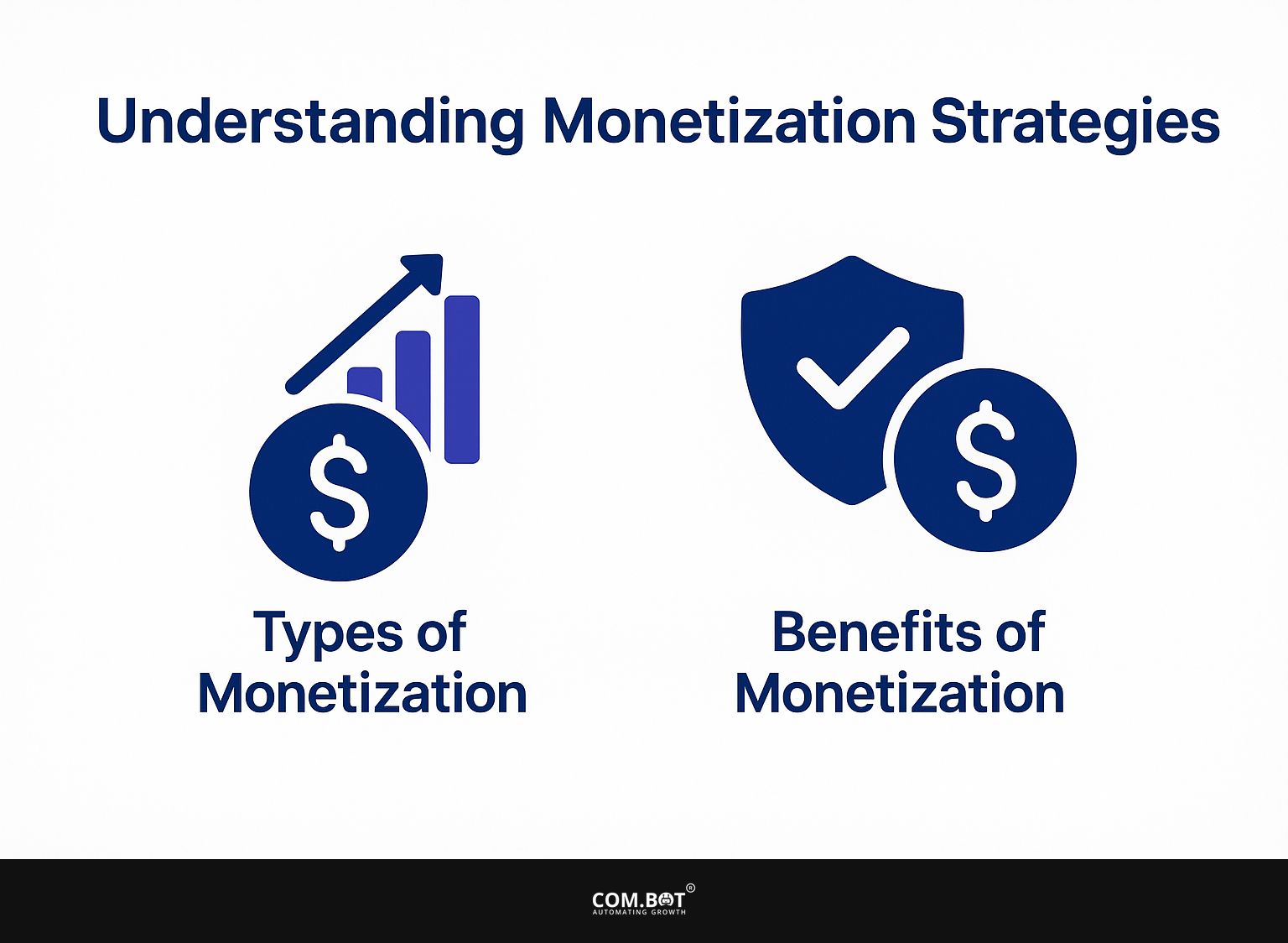
1. Types of Monetization
Common types of monetization include advertising (e.g., Google AdSense), subscription models (like Patreon), and affiliate marketing (using platforms like Amazon Associates).
Each method has distinct advantages. Advertising allows quick revenue, especially if traffic is high, with potential earnings varying from a few dollars to thousands monthly, based on clicks or impressions.
Subscription plans help build loyal groups, providing steady income-successful creators can make $1,000 or more each month from committed supporters.
Meanwhile, affiliate marketing can be lucrative with strategic placements; for instance, tech bloggers may earn $100+ per sale through Amazon Associates. Using platforms like HubSpot, businesses often combine these methods for diversified revenue, maximizing each opportunity.
2. Benefits of Monetization
Monetization can lead to increased revenue, allowing businesses to invest in marketing campaigns and improve overall brand growth. To effectively monetize, consider diversifying your revenue streams. You can implement affiliate marketing, where you earn commissions for promoting products relevant to your audience.
For instance, a blog on outdoor activities could partner with camping gear companies. Look into digital items such as e-books or online classes specific to your area of interest; they can often provide good profits.
Use analytics tools like Google Analytics to monitor which products or promotions engage your audience, and change your approach to increase profits.
The Role of Moderation in Online Platforms
Moderation is key to ensuring online platforms are safe and honest by overseeing how users interact. This approach aligns with the principles outlined in our analysis of content moderation strategies, transparency, challenges, and strategies.
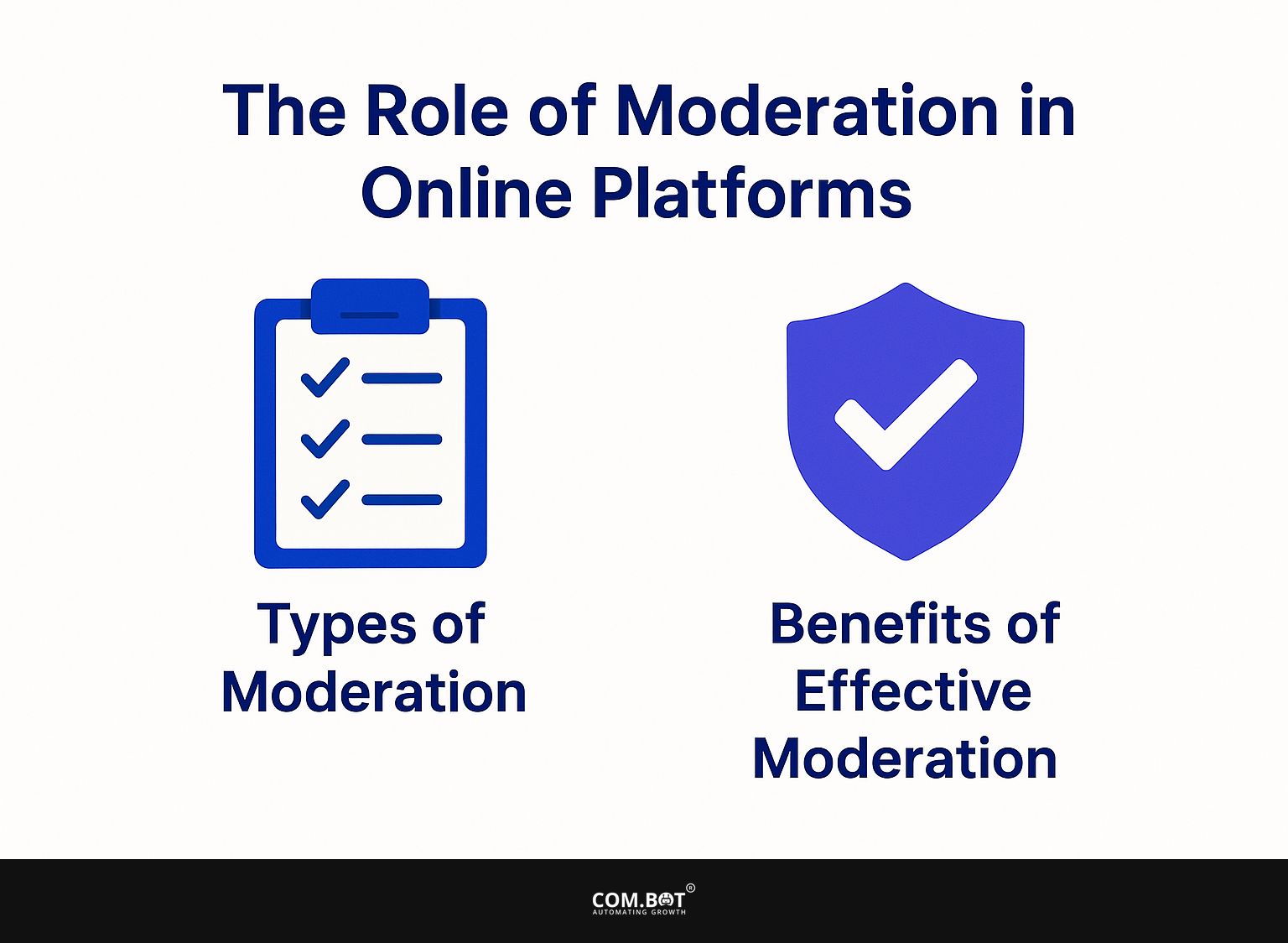
1. Types of Moderation
Different ways to moderate include manual review, where staff members look at comments, and automated review, which uses tools like Arwen AI to filter content. Manual moderation provides detailed feedback, but it can be slow and needs a lot of resources.
Instead of doing it by hand, tools like Arwen AI use machine learning to quickly manage and remove spam or inappropriate comments in large quantities.
For instance, Arwen AI can analyze user sentiment and context, resulting in a 30% increase in relevant interactions. A hybrid approach, combining both methods, often yields the optimal balance, reducing the workload while maintaining the quality of community engagement.
2. Benefits of Effective Moderation
Proper moderation improves brand safety by minimizing harmful comments and creating a secure space for users to interact.
To do this, set up a strong moderation plan with tools such as Disqus, which offers features for managing community discussions, or use services like Sprout Social for handling social media.
Establish guidelines that encourage constructive feedback and clearly outline unacceptable behavior. Regularly look over and make changes to these guidelines to match how users interact.
Consider using automatic filters to block common bad language or unwanted messages. This cuts down on manual tasks and makes things easier for users, creating a welcoming environment for all.
Conflict Between Monetization and Moderation
The fight between earning money and staying respectful occurs when focusing too much on profit negatively affects user experience and breaks trust within the community.
Social Media Monetization and Moderation Statistics
Social Media Monetization and Moderation Statistics
Content Moderation and Public Opinion: Support for Content Removal
Content Moderation and Public Opinion: Platform Actions
The Social Media Monetization and Moderation Statistics Show public opinion on content moderation and what social media platforms do to handle harmful content.
Content Moderation and Public Opinion reveal significant support among US adults for the removal of harmful content. 63% support the removal of hateful content, while 59% advocate for the removal of content that inspires violence. This indicates a strong consensus for maintaining safe online environments. Conversely, only 35% believe that platforms should be primarily responsible for content moderation, while 30% think the government should oversee this responsibility. Interestingly, 65% expect to encounter aggressive comments online, illustrating the pervasive nature of negative interactions on social media.
Platform Actions show the big steps social media companies are taking to deal with harmful content. In Q3 2023, Facebook took action against 5.8 million instances of hate speech and removed 1.8 million pieces of violent and graphic content in Q2 2023. These figures highlight Facebook’s ongoing commitment to creating a safer environment for its users. TikTok, a platform with significant user engagement, removed a staggering 153.06 million videos in Q4 2024 for violating community guidelines. This action shows the platform actively moderating content to protect its users.
Reddit, known for its diverse and extensive user-generated content, removed 43.4 million spam content pieces in the first half of 2024. This extensive moderation effort reflects Reddit’s commitment to maintaining the quality and integrity of discussions on its platform.
The data shows that many people want harmful content removed, and social media platforms are working hard to fix these problems. Despite these efforts, there remains a significant portion of users who expect to encounter aggressive behavior online, pointing to the ongoing challenges in moderating vast amounts of user-generated content. Working together, social media platforms and government monitoring could improve how content is controlled.
1. Case Studies of Conflicts
Many platforms have had issues, like when Facebook was criticized because its ad policies were seen as a threat to user privacy, causing public complaints.
A notable incident occurred in 2018 when Cambridge Analytica harvested personal data from millions without consent. This breach resulted in Facebook paying a $5 billion fine and caused a public outcry that led to changes in platform policies.
Users expressed concerns about data transparency through various channels, such as social media campaigns and petitions. The fallout highlighted the necessity for platforms to prioritize user privacy and clearly communicate data usage policies, which has since influenced how tech companies approach data protection.
2. Impact on User Experience
Poor handling of monetization vs. moderation can lead to diminished user engagement and a negative impact on brand reputation.
For instance, platforms like Meta have seen fluctuations in user retention rates, often dropping by as much as 20% following content moderation controversies. When users feel their experiences are not valued, they may reduce engagement or even abandon the platform.
To address this, a balanced approach is important: setting clear rules for monetization that match community standards, using data to measure user feelings, and holding focus groups to learn what users expect. These methods can help establish trust, improving retention and restoring brand loyalty.
Resolution Strategies
Using practical solutions can help businesses manage earning money and enforcing rules while encouraging community involvement.
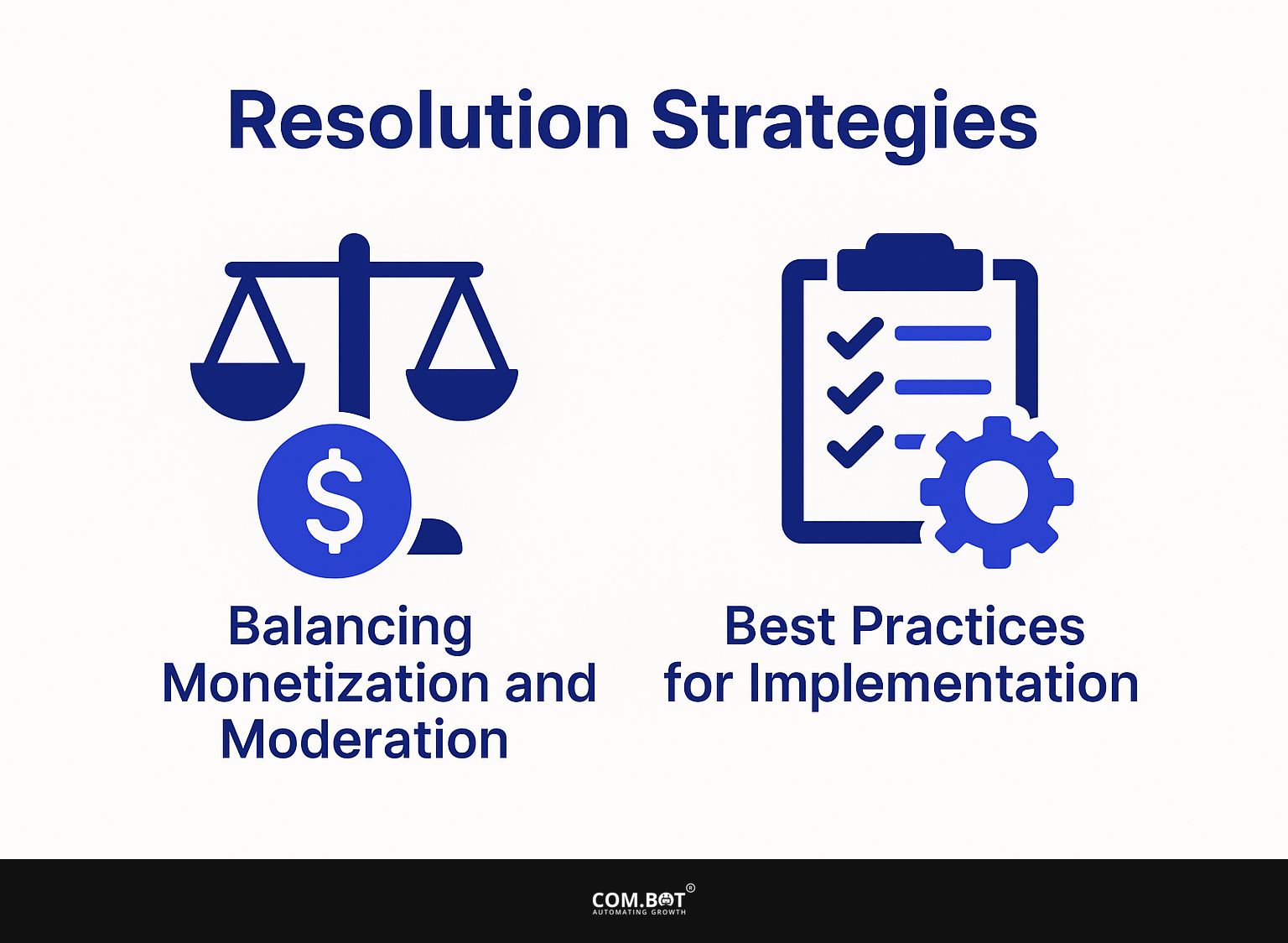
1. Balancing Monetization and Moderation
Balancing monetization and moderation involves implementing community guidelines that promote user satisfaction while generating revenue.
- Start by defining clear community guidelines that outline acceptable behavior and content.
- Use tools like HubSpot or Discourse to carefully track how users interact and what feedback they provide.
- For monetization, consider a tiered membership model where users receive premium content or perks for a subscription fee.
- Get users to participate in polls and talks to make your guidelines better, ensuring they align with what the community values.
This two-part method both creates a peaceful setting and promotes financial backing, ensuring a user-friendly experience.
2. Best Practices for Implementation
Best practices for implementation include utilizing social media tools for comment analysis and regularly reviewing performance metrics to gauge success.
Using tools like Hootsuite to track interaction helps brands reply quickly and build a community feeling. Regular performance reviews should include key metrics such as engagement rates, conversion rates, and user feedback.
For example, a B2C brand like Glossier uses information from social media to adjust its products based on customer feedback.
In the same way, using Google Analytics to monitor metrics can show which content attracts the most visitors, helping businesses to improve their strategies successfully.
Future Trends
New technology developments and changing user demands will change how online spaces earn money and manage content.
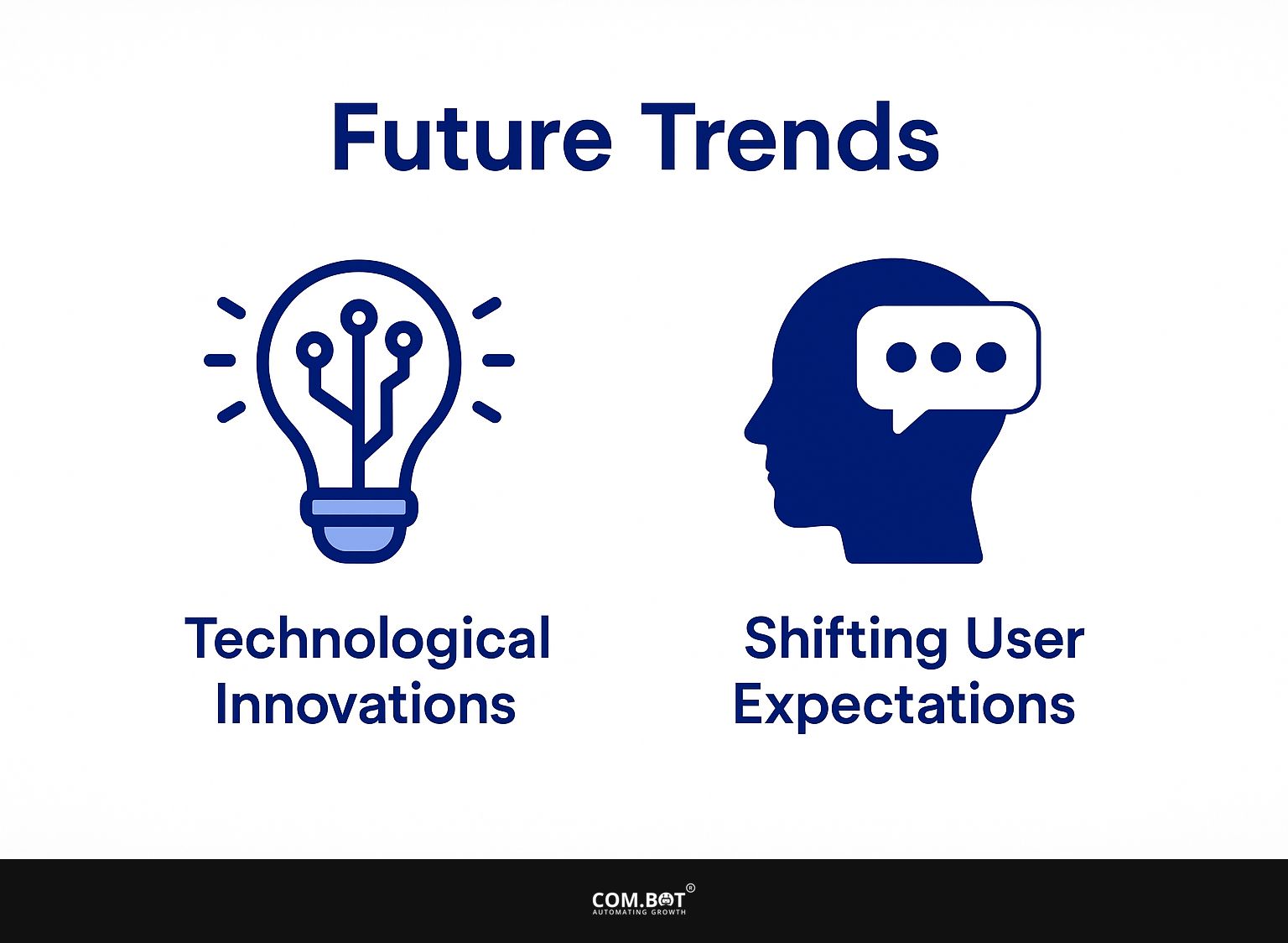
1. Technological Innovations
New technology like AI models for automatically generating text can improve how we make money and manage content.
For example, tools like Jasper AI and Copy.ai help content creators write great articles fast. This can improve SEO results, attract more visitors, and lead to higher earnings.
On the moderation side, platforms like Grammarly and Hemingway Editor can maintain content quality by flagging grammar issues and readability concerns before publication.
Using ChatGPT to talk with audiences can lead to customized discussions that make the user experience better and encourage users to return. By using these modern technologies, creators can make work processes more efficient, improve productivity, and encourage community development.
2. Shifting User Expectations
As user behavior evolves, so do expectations regarding community trust and engagement strategies that platforms must adopt.
To meet these changing expectations, platforms should prioritize transparency and security. Implementing features such as real-time content moderation reports can help users see how their data is managed.
Providing clear opt-in policies for data usage helps users feel more in control. For example, Reddit’s community tools let users vote on how well content is moderated, creating a more involved environment.
Regular updates about security protocols can build trust, encouraging user retention and engagement.
Frequently Asked Questions
1. What is the difference between monetization and moderation?
Monetization means making money from a platform or service, while moderation means watching and controlling the content on that platform.
2. How do conflicts arise between monetization and moderation?
Conflicts can arise when the desire to maximize profits through monetization clashes with the need to maintain a safe and positive environment through moderation. This can lead to disagreements on what content should be allowed and how it should be managed.
3. What are some common conflict resolution strategies in this situation?
One strategy is to have clear guidelines and policies in place for both monetization and moderation. This can help avoid conflicts and offer a way to solve them. Another strategy is open and effective communication between those responsible for monetization and moderation.
4. What factors should be considered when deciding between monetization and moderation?
Decisions about monetization and moderation should consider the platform’s values and goals, the intended audience, and legal and ethical considerations. It is important to strike a balance between generating revenue and maintaining a positive user experience.
5. Is it possible for monetization and moderation to coexist peacefully?
Yes, with careful planning and effective communication, monetization and moderation can work together to achieve a common goal. Regularly check and change strategies so everything works well together.
6. What can be done to prevent conflicts between monetization and moderation?
Regularly checking and changing policies, paying attention to feedback from users and stakeholders, and knowing the platform’s values and goals can all help stop conflicts from happening. It is also important for both monetization and moderation teams to work together and communicate openly to address any potential issues.
